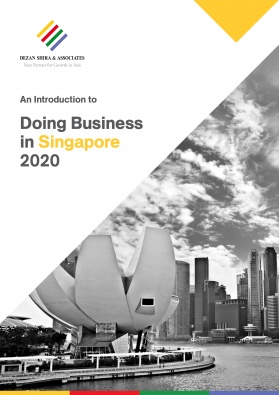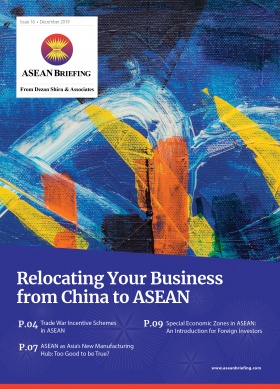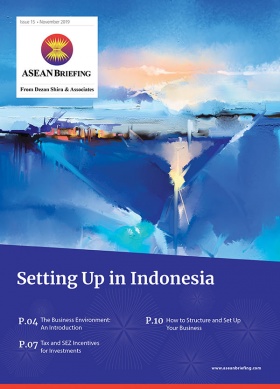Cambodia Issues Regulations for Businesses Impacted by COVID-19 and EBA
- On February 25, 2020, Cambodia issued regulations to support businesses recently impacted by the coronavirus (COVID-19) outbreak.
- The regulations were also intended to assist businesses impacted by the partial withdrawal of ‘Everything but Arms’ (EBA) status by the European Union (EU).
- The regulations provide tax breaks and holidays for the country’s manufacturing, tourism, agriculture, and property industries.
On February 25, 2020, Cambodia issued regulations to support businesses recently impacted by the coronavirus (COVID-19) outbreak as well as from the partial withdrawal of ‘Everything but Arms’ (EBA) status by the European Union (EU).
The regulations provide tax breaks and holidays for the country’s manufacturing, tourism, agriculture, and property industries. These are key industries to Cambodia’s economy, especially, the garment and footwear sectors, which accounted for 80 percent of the country’s exports.
In early February 2020, the EU suspended Cambodia’s trading preferences under the EBA program. The EBA status gives 49 of the world’s poorest nations duty-free access to EU markets.
Cambodian-based exporters will now have to pay full tariffs for more than 30 products, including specific types of garments and footwear and is set to affect one-fifth of the country’s exports to the regional bloc totaling US$1.1 billion.Investors should seek the assistance of dependable advisors to help them understand how they can benefit from these incentives.
Garment and footwear sector
The government has provided tax holidays of six months to one year for factories severely impacted by the COVID-19 outbreak and the EBA suspension. Cambodian garment factories have reported a shortage of raw materials caused by a disruption in supply chains caused by the virus.
The Ministry of Finance will issue prevailing regulations for the tax-exemption assessments and its implementation.
Easing import rules
The General Department of Customs and Excise (GDCE) will be more lenient in facilitating the import of raw materials, accessories, and parts used for textile and garment production. The GDCE has extended the number of products that qualify for the ‘green lane’ custom clearance.
Cambodia has four custom lanes for imports – red, yellow, green, and blue. Goods that use the green lane are immediately assessed and are issued custom clearance documents. The GDCE will work closely with the Garment Manufacturers Association in Cambodia (GMAC), freight forwarders, and customs brokers to determine the service fees. Further, the GDCE will also cooperate with special economic zones (SEZs) across the country.
Tourism sector
Tourism has been a growing sector to the Cambodian economy. In 2015, the government launched the ‘China Ready for Cambodia Tourism’ policy to attract more Chinese tourists. The policy resulted in two million Chinese tourists visiting the country in 2019.
With the onset of the COVID-19 outbreak, however, the country is unlikely to meet its target of two million Chinese visitors in 2020.
To combat this, hotels and guesthouses located in the Siem Reap province will be exempted from paying tax from February to May 2020.
Additionally, the government has offered special deals for tourists visiting the Angkor Archaeological Park in Siem Reap and where the Angkor Wat temple is located. These are:
- A one-day ticket will be valid for two days until June 25, 2020;
- Three-day tickets will be valid for five days;
- The seven-day passes will be valid for 10 days.
Suspension of stamp duty tax on property
The government will suspend the four percent stamp duty tax on the transfer of residential properties from February 2020 to January 2021. There are several criteria that property owners must meet:
- The property must be worth less than US$70,000; and
- The transfer of ownership of the property must be from a property developer registered with the Ministry of Finance.
The government is hoping this policy will support small and medium (SME) sized property developers as well as middle-income households to purchase houses.
Support for the agriculture sector
To support the agriculture sector, the government is allocating US$50 million in the form of low-interest loans to help SMEs.
The funds will be distributed through the state-owned Rural Development Bank (RDB) with the goal to increase local production capacity.
About Us
ASEAN Briefing is produced by Dezan Shira & Associates. The firm assists foreign investors throughout Asia and maintains offices throughout ASEAN, including in Singapore, Hanoi, Ho Chi Minh City and Jakarta. Please contact us at asia@dezshira.com or visit our website at www.dezshira.com
- Previous Article Indonesia Unveils Stimulus Package to Combat Coronavirus Impact
- Next Article Cambodia’s Law on Financial Management








